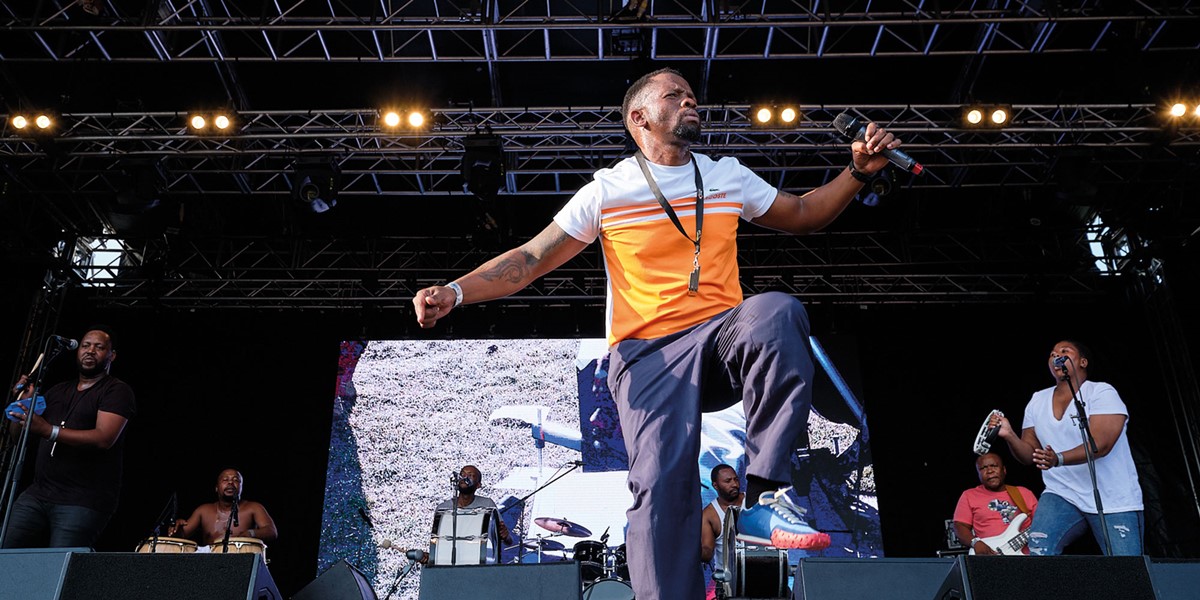Tuesday, November 26, 2019
BCUC: “We are from a culture of spiritual endurance and our music transcends sound”
Diane Coetzer talks to the South African band BCUC who are exporting their traditional Soweto music across the globe and mesmerising audiences, one transcendental show at a time

Lead singer Zithulele ‘Jovi’ Zabani Nkosi performing at Africa Oyé in Liverpool in June (photo: Mark McNulty)

Register now to continue reading

Thanks for visiting the Songlines website, your guide to an extraordinary world of music and culture. Sign up for a free account now to enjoy:
- Free access to 2 subscriber-only articles and album reviews every month
- Unlimited access to our news and awards pages
- Our regular email newsletters

